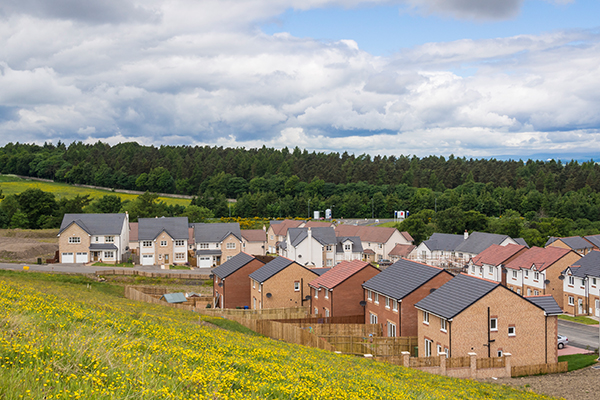You are viewing 1 of your 1 free articles
Well-sited, small-scale housing is the key to good rural development
To mark Rural Housing Week, Jonathan Layzell argues that smaller schemes in places where people want them are most effective in countryside areas
Small-scale affordable housing must be recognised as a force for good in our rural communities because it drives investment, creates jobs and is vital to the long-term health of our country towns and villages.
We have a broken rural housing market, and the fix is not to build huge swathes of generic affordable schemes on the fringes of settlements that create resentment in communities.
More than 40,000 new homes are needed in rural parts of the country annually, but they must be the right mix of housing, in the right location, which meets the needs of the community to deliver growth and economic prosperity.
“Small-scale affordable housing drives investment, creates jobs and is vital to the long-term health of our country towns and villages.”
As a significant provider of affordable rural housing, Stonewater builds small-scale housing schemes in market towns and villages across the country, and the positive impact on the sustainability of those communities is significant.
These small schemes are successful because they are built where people need and want them.
They are sensitively designed in character, aligned to the local vernacular, fostering pride and contributing to a sense of place.
In meeting the needs and aspirations of local people, they are also geared to helping people live in their communities with their established support network for as long as possible.
In siting these affordable schemes in the heart of communities we are also helping to ensure the long-term sustainability of village schools, shops, post offices, pubs and businesses.
In short, they play a pivotal role in keeping our rural communities alive for future generations.
A typical example of this is a small development of 30 affordable homes we recently completed in the village of Evercreech near Shepton Mallet in Somerset.
Evercreech has a population of around 2,300 people, and the new homes Stonewater has built – a mix of affordable rent and shared ownership – sit in the heart of the village, opposite the local primary school, on what was previously publicly owned land. They range from one and two-bedroom homes, to three and four-bed houses for growing families.
This small scheme adds value to the village in a number of ways. In rural areas the gap between average wages and average house prices is even more stark than elsewhere.
By siting affordable homes here we can ensure that people who work within the local economy and whose employment supports local services can live in those communities.
Engagement with Evercreech Primary School pupils, who were involved in naming one of the streets, as well as a commemorative public artwork have all helped to create community ‘buy-in’ for the scheme and a sense of place, pride and ownership.
Evercreech is a great example of what can be achieved when housing professionals, local authorities and local contractors work together with the community.
Our construction partners for the scheme, Winsley White, are a local family firm we have been working with for more than 25 years.
“We must speed up the planning process and combat ‘nimbyism’, but we must prevent the loss of services and facilities that will never be replaced.”
This successful partnership has delivered more than 300 affordable homes in the Mendip area, sustaining 4.3 jobs for every home we build, along with supporting local construction skills training and trade apprenticeships. By working with local contractors, we ensure that the investment we make in new homes trickles down into the wider communities in which we work, making a real difference in economic as well as social terms.
If we want to deliver the homes our communities deserve we must speed up the planning process and combat ‘nimbyism’, but we must do so in a positive manner to prevent the loss of services and facilities that will never be replaced.
Well-built, small-scale affordable rural housing developments like Evercreech, sensitive to the character of the area, which residents want and of which they are proud, contribute to sustaining rural services, rural businesses and our rural communities for the future.
This approach could well shift the conversation from “Not in my back yard” to “When can we have it?”
Jonathan Layzell, executive director for development, Stonewater












